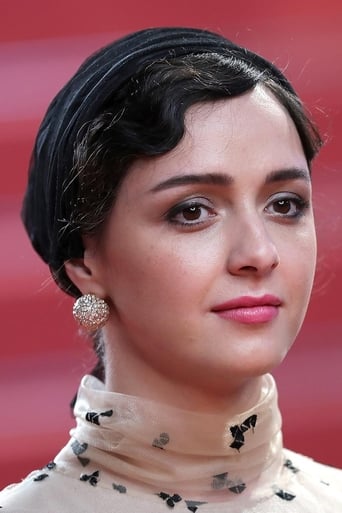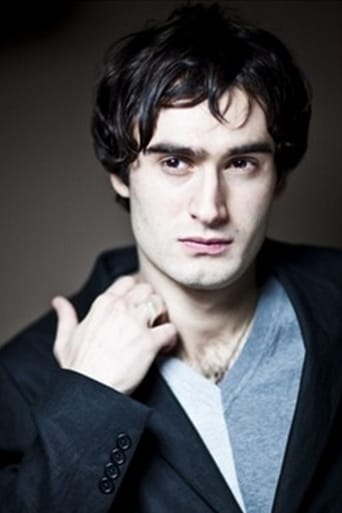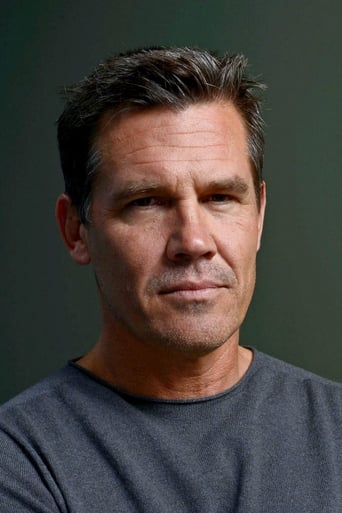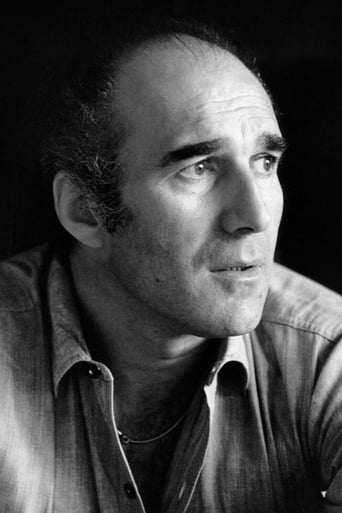NipPierce
Wow, this is a REALLY bad movie!
Solemplex
To me, this movie is perfection.
Crwthod
A lot more amusing than I thought it would be.
Imdbidia
Chacun son Cinema is a collection of 33 short films, 3-minute long each, made by renowned international directors, which was released in 2007 to celebrate the 60th anniversary of the Cannes Film Festival. The shorts revolve about the emotional connection of the director with movies in general, certain movies in particular, or some movie theaters.As you can expect from a collection of short films, there are good bits, so-so bits, and bad bits.The movies I liked the most were eight. I loved two of the Asian ones, "Movie Night" by Yimour Zhang and "Zhanxiou Village" by Kaige Chen, which really reminded me of my childhood and my relation with movies; they are beautifully shot and have special magical moments in them. I found hilarious "Cinema Erotique" by Polanski. "Cinema around the corner" by Lelouch is very stylish, while "The Foundry" by Kaurismoki and "Dans le Noir" by Konchalovsky are great concepts an thought- provoking films. I also liked the emotion (without the corn) in "Darkness" by the Dardennes and "Anna" by Iñarritu. Some of the others are still interesting an nice, some others a complete disappointment and waste of time.The main flaws of the movie, to me, are 1/ the length being limited to 3 minutes, the director has a time constriction that doesn't allow to do much, really, and the stories in the shorts resent it. 2/ The regional unbalance in the selection of the movie directors, very French on the other hand, with a complete shocking absence of Spanish directors! 3/ The only sub-Saharan movie is not even made by an African director... that's a sort of Colonialism... 4/ The presence of that mediocre called Moretti chosen to represent Italy.However, it is an interesting and enjoyable collection of stories. Cinema is full of magic and has shaped our lives since childhood, and this collection of shorts tries to honor that.
sprengerguido
(This review concerns the DVD version, which omits the contributions by the Coens and Lynch.) Omnibus films are always a mixed bag, but one thing can be said about this one: No other omnibus contains as many films from so many talented directors. So, as omnibuses go, this is pure joy. All these three-minute-pieces deal with being in a movie theater or watching movies. Some goodies and some baddies: Only a few directors manage to compress intensity and emotion into even the briefest, most unassuming forms. One of them is Alejandro Gonzalez Inarritu – his single-shot entry about a blind movie goer (one of three in this collection) is mysteriously touching and formally exquisite.Another director of that ilk is Wong Kar-Wai – his film manages to evoke intense feelings of desire and memory with a few almost abstract shots of people in a dark theater, like glowing orange and red strokes on a black canvas, a few intertitles, and dialogue from Godard's "Alphaville": wonderful. Except Wong, all the other Chinese(-speaking) directors show rather wistful visions of the past, including Zhang Yimou, Chen Kaige and Taiwan's Hou Hsiao-Hsien. Taiwan's Tsai Ming-Liang is the most original among them: In characteristically perfect compositions and hypnotic pace, he imagines his childhood family having a picnic in a movie theater – as if the cinema is a repository of a home long lost. "It's a dream", and not without irony.Talking about wistful – I like much of Theo Angelopoulos' work, but not that certain underlying pompousness, that "Look at me – I'm a poet!" attitude. Here he has an aged, dignified Jeanne Moreau recite her text from the final scene of Antonioni's "La notte", then addressed to Marcello Mastroianni, to – an actor playing Mastroianni's ghost. Aw, no, Theo! There's just one Marcello, remember? Put his picture on a wall, show him in a scene, but don't replace him with someone else! This is a dedication that backfires. But it is on the foil of such serious arty attempts that other contributions shine, like Lars Von Trier. I had expected something conceptually more intriguing from him, but maybe it is conceptually intriguing to, in the company of illustrious artists, deliver something that is just gross. Trier addresses one of the most serious issues of watching movies: the idiots you're watching them with. He offers an ultimate example of that character, and the ultimate solution. My laugh-out-loud moment. A similar moment of resistance to good taste is Cronenberg's "The suicide of the last jew in the last cinema of the world" – there's not much more to it than the title indicates, but it's fun for one reason. I think the very first film the director ever showed in Cannes was one of his early experimental features, and it just tanked. These early works consisted of dialogue-free scenes with bizarre voice-overs, and Cronenberg uses this form again here. That is irony. And Raoul Ruiz is the man. At his best, he combines Godard's literacy with a reluctant love for storytelling and rich, surprising visuals. Here, he has read Marcel Mauss' "Essai sur le don". A blind man tells how a missionary, a man of God, gave a radio and a movie projector to some Indians. They ritually transform these gifts into ceremonial exchange items and sacrifices. When they give them back to the westerners, they turn them into blind atheists, thus taking away from them both God and the images. And that's just one level of what is happening in these mind-boggling three minutes. Roman Polanski's recurring themes are sex, random cruelty, misleading conclusions and awkward situations – and they are all present here, in this little joke about an elderly couple watching an erotic film. It's quite literal – you could tell it to your friends at a party – but nicely executed. (And why does everyone, except the groaning man, wear glasses?) Abbas Kiarostami's entry is a sketch for "Shirin", his follow-up feature, using the same concept: You do not see the movie, but the reaction of the Iranian women watching it. The film being Zeffirelli's "Romeo and Juliet", the paradigmatic tale of forbidden love, their emotional reactions are powerful and evocative. It makes me long to see "Shirin". And as for the rest, see for yourself.
Harry T. Yung
Those who have seen "Paris je t'aime" will not forget that movie with 18 5-to-10-minute segments of a whole pageantry of short stories with one common theme – the City of Light. "To each…." offers 33 segments each straightly limited to 3 minutes, with the main theme being the Cannes Film Festival (in celebration of its 60th anniversary).The 35 directors (there are two pairs of brothers, if you are doing an audit of the numbers while reading this) from 5 continents and 25 countries are all masters in their own right. It's dazzling just to observe how they take up the challenge to use the 3 minutes to say something that will stand out above the other 32! Some follow their unmistakable trademark style, such as Takeshi Kitano and WONG Ka-wai. Some resort to devilishly funny twists, such as Roman Polanski. Some squeeze as much witty dialogue as possible into the 3 minutes, such as Jane Campion and Divid Cronenberg. Still others take advantage of well-loved songs which almost immediately win the audience over, such as Claude Lelouch ("Cheek to ckeek") and Abbas Kiarostami ("What is a youth"). There are also humanitarian messages, as offered by CHEN Kaige and Wim Wenders.I won't attempt to mention every segment and every director. Suffices to say that with such a large number of attempts there will be good and bad (world-class directors notwithstanding). I am happy to report that there is definitely more good than bad.
garymey
CHACUN SON CINEMA- TO EACH HIS OWN CINEMANowhere have I found the shorts listed in the order they play on the DVD. I am listing them here but it is most fun to watch them without looking at the list as most name the director following the 3 minutes short and it is fun to guess who directed each work. Several themes reappear such as blindness, near empty cinemas, projection problems and self reverential moments.OPEN-AIR CINEMA- Raymond Depardon ONE FINE DAY- Takeshi Kitano THREE MINUTES- Theo Angelopoulos IN THE DARK- Andrei Konchalovsky DIARY OF A SPECTATOR – Nanni Moretti THE ELECTRIC PRINCESS HOUSE- Hou Hsiao-Hsien DARKNESS- Jean-Pierre & Luc Dardenne ANNA- Alejandro González Iñárritu MOVIE NIGHT- Zhang Yimou THE DYBBUK OF HAIFA- Amos Gitai THE LADY BUG- Jane Campion ARTAUD DOUBLE BILL –Atom Egoyan THE FOUNDARY- Aki Kaurismäki UPSURGE –Olivier Assayas 47 years later- Youssef Chahine IT'S A DREAM- Tsai Ming-Ling OCCUPATIONS- Lars Von Trier THE GIFT- Raul Ruiz THE CINEMA AROUND THE CORNER- Claude Lelouch FIRST KISS- Gus Van Sant CINEMA EROTIQUE- Roman Polanski NO TRANSLATION NEEDED- Michael Cimino AT THE SUICIDE OF THE LAST JEW IN THE WORLD IN THE LAST CINEMA IN THE WORLD David Cronenberg I TRAVELLED 9000 KM TO GIVE IT TO YOU –Wong Kar Wai WHERE IS MY ROMEO? –Abbas Kiarostami THE LAST DATING SHOW- Billie August IRTEBAK – Elia Suleiman SOLE MEETING –Manoel De Oliveira 5.557 MILES FROM CANNES WAR IN PEACE –Wim Wenders ZHANXIOU VILLAGE- Chen Kaige HAPPY ENDING- Ken LoachNot on the DVD are a second Walter Salles short, Joel and Ethan Coen's WORLD CINEMA and David Lynch's ABSURDA, all delivered to late to be included.List of actors and segments: http://www.imdb.com/title/tt0973844/




